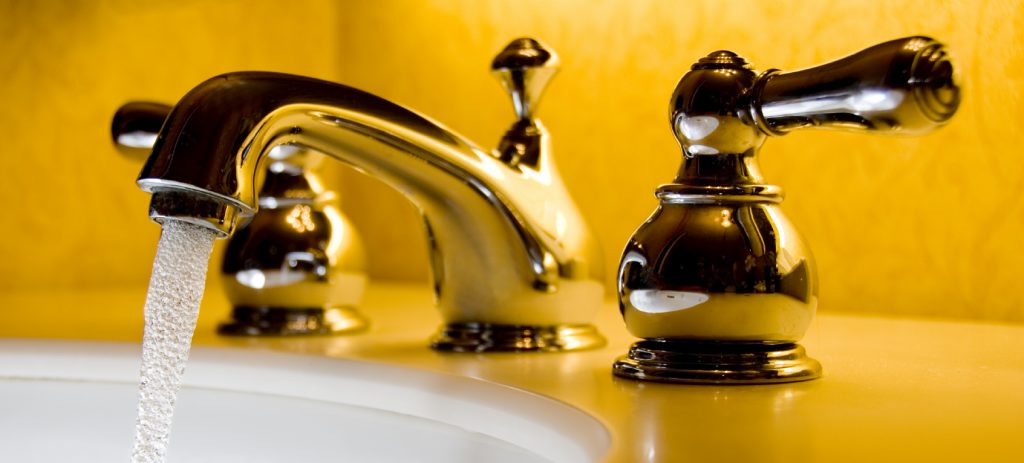Why Does The Water in My Home Taste Bad?

Does the water in your home taste or smell off? Perhaps it tastes stale, or like chlorine, and it’s much stronger smelling in the morning than it is in the evening. If so, you’re not alone – this is a commonly Googled question. There are a smattering of people searching for a definitive answer, but of course, the answer is complex.
It could be that there is a low turnover of water and, therefore, the water has been standing too long – you should have a regular flushing scheme. Your chemical-tasting water is likely to be harmless, as chlorine is added during treatment of water and used to kill harmful bacteria, and so it might just be that the levels are slightly higher than usual. For more light on this topic, read on.
Treating drinking water in the UK
To ensure drinking water in the UK is safe, it must go through treatment processes, but this depends on where this raw water comes from. There are two types of water sources: one type is groundwater and the second is surface water.
- Groundwater treatment – where water is taken from aquifers and springs.
- Surface water treatment – water is removed from rivers and reservoirs.
What is the cause of chlorine smelling/tasting water?
From time to time you may notice that your drinking water smells like bleach, and this is often confused with chlorine. Chlorine is used to clean water, and typically, there will be a minute amount that comes through our taps and into our glasses of water, though this is unharmful to humans in such small quantities. If the smell of chlorine is recognisable, chances are it has been treated with too much chlorine.
The treatment process: public water must undergo the following to ensure it is safe for human consumption…
- Water is pumped into a treatment plant.
- Water from rivers will be stored in open reservoirs – water is typically stored here for months before being treated. This long-term storage process actually improves the water quality, allowing any solid contaminants to settle at the bottom and sunlight helps to breakdown unwanted materials, killing off bacteria too.
- Screening happens usually to surface water, this process filters the water as it passes through screens or grills.
- Coagulant is added to the water, this binds silt and mud particles, which then causes them to float and from here they can be removed with ease.
- Filtration happens next, using slow sand filters. The top sand layer, traps small materials that still remain in the water and as the water seeps through, the water is cleaned once again.
- The water is now ready for Aeration. This procedure reduces the oxidised levels – removing compounds such as carbon dioxide and hydrogen sulphide.
- GAC – Granular Activated Carbon – absorbs unpleasant odours and tastes.
- Ozone dosing is administered into the water and removes organic materials and pesticides.
- ‘Disinfection’, chlorine is used to disinfect the water and is added as a gas or liquid. This is done toward the end of the treatment process, to eliminate harmful microorganisms.
- Long lasting disinfectant, ammonia is added to the water and has a chemical reaction when mixed with chlorine – producing chloramines.
How to get rid of chlorine smelling drinking water?
You can still drink this water. There are some things you can do to take the smell away.
- Fill a jug, cover it and place it in the fridge to cool but don’t leave any longer than 24 hours – keep it as fresh as possible.
- Boil the water.
- Call a professional who will be able to offer impartial advice.
What can I do to prevent my drinking water from tasting bad?
- Run the tap for a minute to flush out the standing water – to avoid wasting water, fill a bucket and use this to water your garden.
- Check your cold water tank, ensure it’s clean and has a fitted lid.
- Examine the inlet of your cold water tank – see to it that is far away from the outlet – this will prevent stagnant water.
Downloadable Guide for Print: Why Does The Water in My Home Taste Bad?
Over the past 10 years, A&D Plumbing Services have become the go-to specialists for plumbing and heating to customers throughout Colchester, Braintree, Ipswich and beyond. With well trained and dedicated staff on hand, you can trust us to deliver flawless installations, maintenance or repairs. Our aim is to beat any genuine quotations, provide seamless services, impartial advice and great customer care. For more information, call or email us today.




